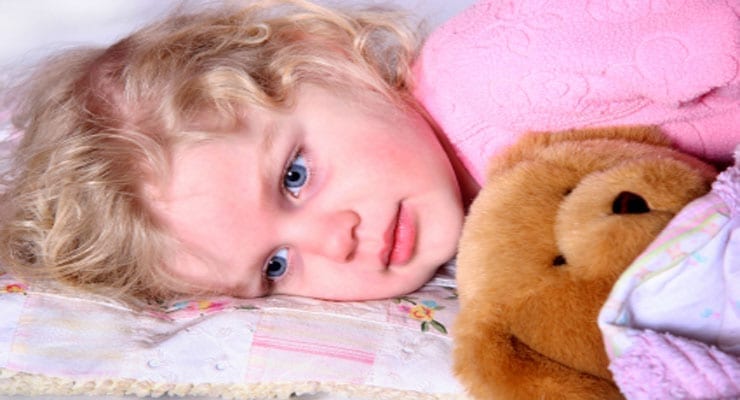Children rarely wet the bed on purpose or because they’re too lazy to get up, so it doesn’t do any good to punish your child or get angry with him for doing so. Bed-wetting is a medical condition called enuresis. About 5 to 7 million children in the United States have this problem, most of them boys. Bed-wetting usually clears up on its own by the time a child is 6 years old.
Voiding Dysfunction
If your child is still wetting the bed at age 6, take her to a doctor. If she’s also wetting herself during the day or has bowel problems, this indicates a more serious problem called a voiding dysfunction. This occurs when a child tries to control her bladder at the same time the bladder tries to empty, rather than controlling the bladder before it gets to that point. Signs of this type of dysfunction include a child either crossing her legs or squatting in an effort to stop urination. Once this type of behavior begins, it is difficult for a child to relax her muscles enough to urinate when she is on the toilet and wants to. This same muscle control problem can also lead to constipation. Your doctor can recommend the right treatment for your child and he will probably check your child’s urine for infection, too.
Heredity
If you or your husband used to wet the bed, your child has a 4-in-10 chance of being a bed-wetter. And, if both you and your husband wet the bed as children, your child has a 7-in-10 chance of wetting the bed.
Deep Sleepers
Some children sleep so deeply, they don’t wake up when their bladder feels full. One of the best remedies for this problem is to purchase a behavior conditioning alarm, available at most pharmacies. This battery-operated device attaches to a pad that you place in your child’s underwear, pajamas or bedding. As soon as your child starts to urinate, the alarm either buzzes or vibrates, waking your child in time for him to get to the bathroom. Try this for two weeks to determine whether it’s going to work.
Bladder Problems
Some children produce more urine during the night, while others have bladders that cannot hold as much urine. Treat these conditions by limiting fluids after dinner. Do not offer drinks with caffeine, like soda, at dinner. In addition, have your child urinate twice during her bedtime routine; once at the beginning and again just before she gets in bed. If you go to bed later than your child, wake her before you go to bed and have her go to the bathroom. Teach your child bladder control during the day by having her hold her urine for a few minutes before she goes to the bathroom.
Medications and Alternative Therapy
If nothing is working, your doctor may prescribe medication that causes your child to produce less urine or a medication that allows the bladder to hold more urine. These medications may have side effects, such as water intoxication if your child drinks excessive fluids, altering mood or behavior, dry mouth or a flushed face. Some children benefit from hypnosis or acupuncture.





